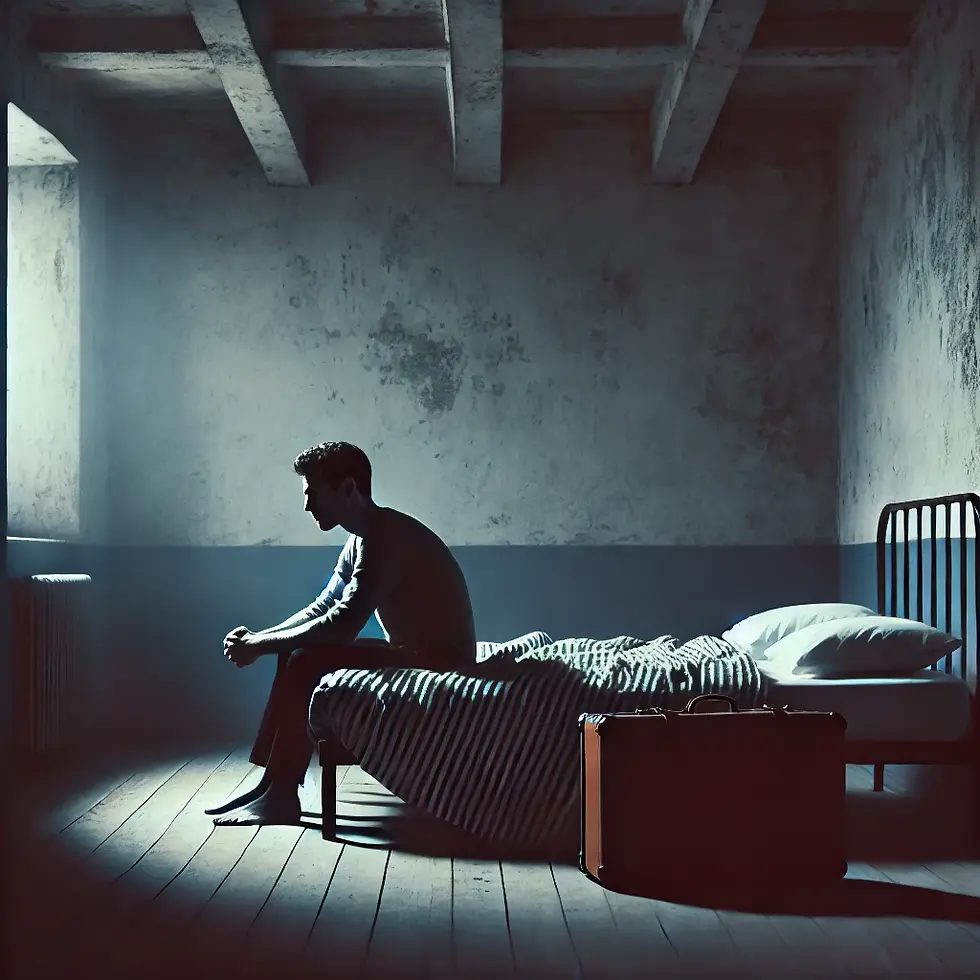Unmoored: The Silent Struggle of Loss After Divorce
- Damien Blaauw

- Mar 3, 2025
- 2 min read

Displaced: The Psychology of Losing Home
I wake up in a bed that isn’t mine. The walls around me hold no history of my touch, no echoes of my past. The air smells different—not unpleasant, but unfamiliar, and for the first time in a long time, I realize—I belong nowhere.
Divorce takes many things, but one of its most unsettling thefts is the loss of home. Not just the physical structure, but the sense of rootedness, belonging, and knowing there is a place where you are safe, where you are known. Losing that foundation leaves you unmoored, a wanderer without a map.
The Psychological Toll of Displacement
Psychologists have long studied the effects of displacement on the human psyche. Maslow’s hierarchy of needs places safety and security just above basic physiological survival. A home is more than shelter; it is the bedrock of emotional and psychological well-being. Sadly, when that foundation is disrupted, the mind struggles to adjust, often leading to feelings of anxiety, depression, and identity confusion.
Environmental psychologist Clare Cooper Marcus coined the term "place identity"—the way in which our surroundings become intertwined with our sense of self. Losing a space we have deeply identified with can lead to a form of identity erosion. I feel this acutely. My old home is no longer mine, and my new space feels like an ill-fitting suit—something I wear but do not inhabit.
The Limbo of Transition
Now, I find myself in a strange limbo. I cannot return to the past, and yet the future feels unformed, uncertain. This is what psychologist William Bridges refers to as the "neutral zone" in his transition model—a period of in-betweenness where the old self has been stripped away, but the new self has yet to emerge. It is an emotionally taxing state, one that demands patience but offers little comfort.
Displacement is not just about geography; it is about identity. Losing a home means losing the version of myself that once existed within those familiar walls, within that structured life. The man who lived there had a role, a position, a routine. The man here, now, is undefined.
Seeking Grounding in the Unfamiliar
So how does one rebuild a sense of home when nothing feels like home? Research suggests that familiarity, routine, and personalization can help bridge the gap. Cognitive-behavioral therapists recommend anchoring oneself in small rituals—morning coffee in the same chair, a favorite book by the bedside, a familiar scent in the room. The more we infuse a space with ourselves, the more it starts to feel like an extension of us.
I have begun this process in small ways. A space in a cupboard here, a familiar perfume there. I remind myself that home is not built in a day, and perhaps, neither is the self. The greatest truth of all may be that home is not merely a place—it is a state of mind, and though I do not yet feel at home, I have to believe that one day, I will.
At least I hope I will...
Ciao! Damien






Comments